Odds are that you’ve missed one of the best articles Tor.com has published this year.
Don’t worry; it happens! Tor.com publishes nearly 4000 non-fiction articles every year, ranging from quick news items to lengthy and unique features, so there’s bound to be stuff that heads downstream unnoticed.
That’s why this year we’re collecting Highlights From Tor.com’s Articles in 2016 into one handy list! Check out some great writing advice, read the personal stories that shook us up inside, and peruse some of the weirdest stuff that bubbled up onto the website this year.
Fun and Bizarre Highlights
Sowing History: A Gardener’s Tale by Ursula Vernon
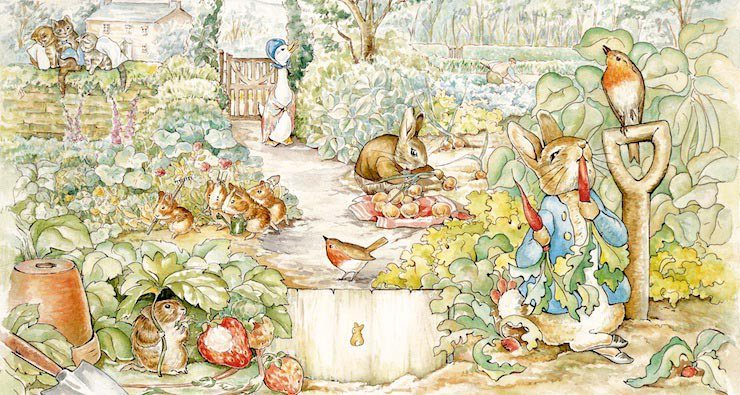 One of the reasons fantasy and science fiction are excellent genres is that they draw on a wide field of passions, and any topic can be the seed for a vast epic. In April, Ursula Vernon wrote about how her love of gardening can blossom into a meditation on human history. And that’s before she even gets to the magnificence of the potato.
One of the reasons fantasy and science fiction are excellent genres is that they draw on a wide field of passions, and any topic can be the seed for a vast epic. In April, Ursula Vernon wrote about how her love of gardening can blossom into a meditation on human history. And that’s before she even gets to the magnificence of the potato.
Those Wonderful Moments When Star Trek Loses Its Mind by Emmet Asher-Perrin
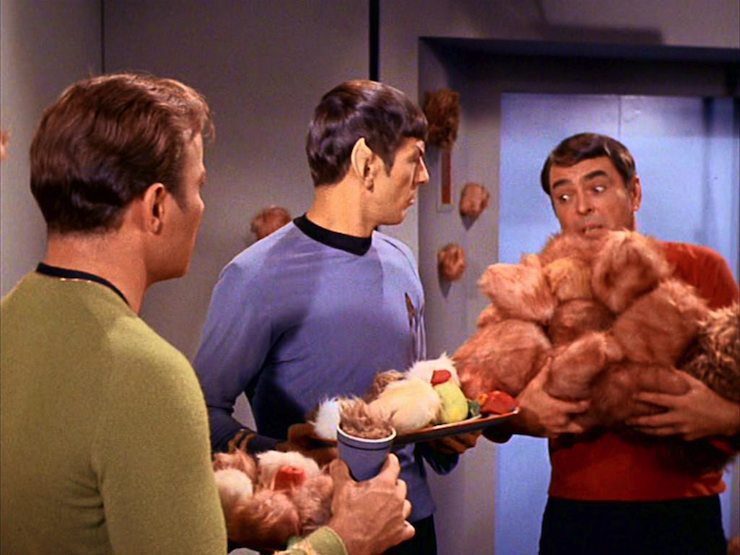 When Star Trek gets goofy it gets really, really goofy, usually when it feels the need to deflate after an extended period of high drama or haughtiness. Emmet Asher-Perrin loves serious Trek, but during its 50th anniversary in September she also had to point out some favorite moments when the show just…kind of lost its mind.
When Star Trek gets goofy it gets really, really goofy, usually when it feels the need to deflate after an extended period of high drama or haughtiness. Emmet Asher-Perrin loves serious Trek, but during its 50th anniversary in September she also had to point out some favorite moments when the show just…kind of lost its mind.
Tribbles were only just the beginning.
Now We Can Map Every Magical World into a Multiverse by Chris Lough and the Tor.com Staff
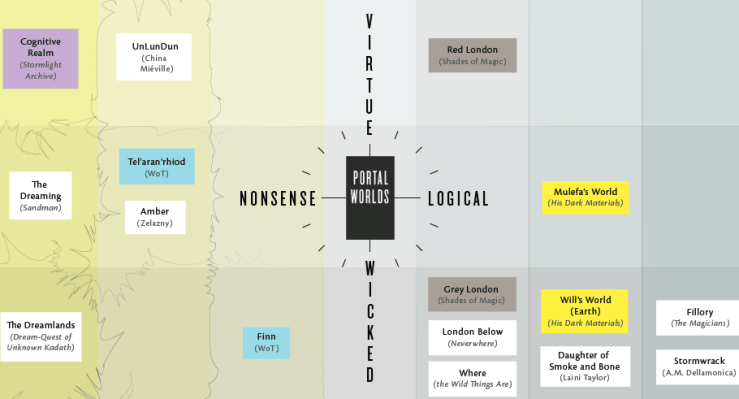 Seanan McGuire’s new book Every Heart a Doorway, gives a rough framework for mapping out where your favorite universe is located within the vast multiverse of fiction. Suddenly this past April we were using Every Heart‘s guidelines to map ALL of the different portal worlds in fiction into a single multiverse.
Seanan McGuire’s new book Every Heart a Doorway, gives a rough framework for mapping out where your favorite universe is located within the vast multiverse of fiction. Suddenly this past April we were using Every Heart‘s guidelines to map ALL of the different portal worlds in fiction into a single multiverse.
Fantasy Creatures Keep Inviting Me Over for Tea by Leah Schnelbach

Leah Schnelbach has a problem. Every time she inadvertently tumbles into a fantasy land, magical creatures invite her in for tea! But whose tea shall she choose? She’d hate to insult a faun, or step on the delicate sensibilities of a badger!
We’re kind of tickled by how Leah gets lost within her own article. Seems appropriate for fantasy tea-time.
How Much Beer Does it Take to Get a Hobbit Drunk? by Emmet Asher-Perrin
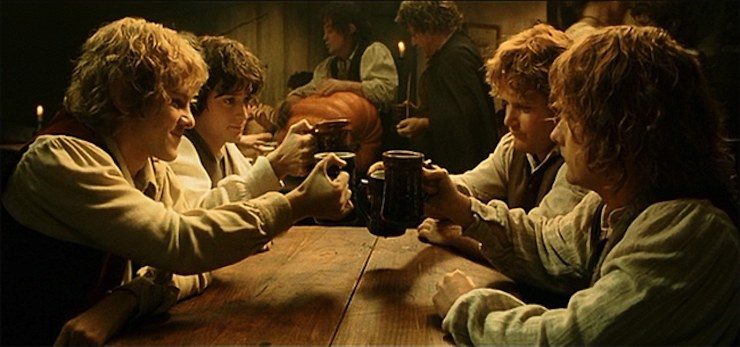 A lot of our weirder articles start as office discussions. So it was with great glee when Emily took this question, ran away with it, did some research and math, and then ran back with a surprisingly complete answer. Hobbits are biologically perfect drinkers of beer.
A lot of our weirder articles start as office discussions. So it was with great glee when Emily took this question, ran away with it, did some research and math, and then ran back with a surprisingly complete answer. Hobbits are biologically perfect drinkers of beer.
Deeply Personal Essays
The Monster in the Mirror: On Horror, Disability, and Loving Both at Once by Lee Foster, formerly known as Emily Foster
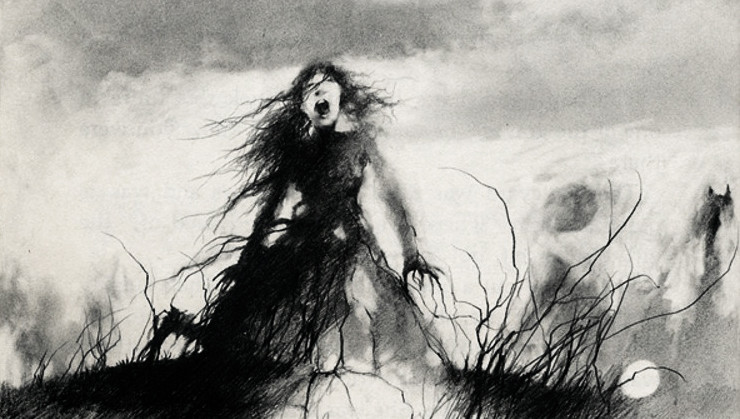
Author Lee Foster’s March 2016 essay on figuring out how to find worth in yourself through horror fiction is stark and sharp and beautiful. This is one of those rare pieces that manages to respect the darkness in your life while also lifting you up:
See, there’s a thing with surviving disability in horror. If you survive your monstrous, evil disability in a horror movie, if you come back, it is not because you have been accepted by the loving arms of your understanding community. It is because you are a force to be reckoned with.
A Story About You: The Narrative of Video Games by Sarah Maria Griffin
 Imagine growing up deep within the video game realm, playing conquering LIVING every game, only for random people to tell you that you don’t belong in their club.
Imagine growing up deep within the video game realm, playing conquering LIVING every game, only for random people to tell you that you don’t belong in their club.
Author Sarah Maria Griffin’s personal essay from October resonates even if you’ve never played a video game, and it speaks to the larger identity of genre fiction, be it in movie, game, or book form: one of a struggle for inclusion.
Self-Discovery Through Rock Mythology — David Bowie, The Patron Saint of Personal Truth by Emmet Asher-Perrin
 As we discovered in January, for many readers David Bowie was the sci-fi/fantasy genre personified. A person who continually explored beyond his horizon and pushed himself into peculiar states of being, finding humanity, finding an aspect of himself, in every single one of those distant states.
As we discovered in January, for many readers David Bowie was the sci-fi/fantasy genre personified. A person who continually explored beyond his horizon and pushed himself into peculiar states of being, finding humanity, finding an aspect of himself, in every single one of those distant states.
Emily’s remembrance does the same: exploring beyond her horizons, finding aspects of herself in peculiar states, with Bowie guiding her every step of the way.
One Day You Wake Up and You Are Grown: Catherynne Valente’s Fairyland and the Secrets of Growing Up by Molly Templeton
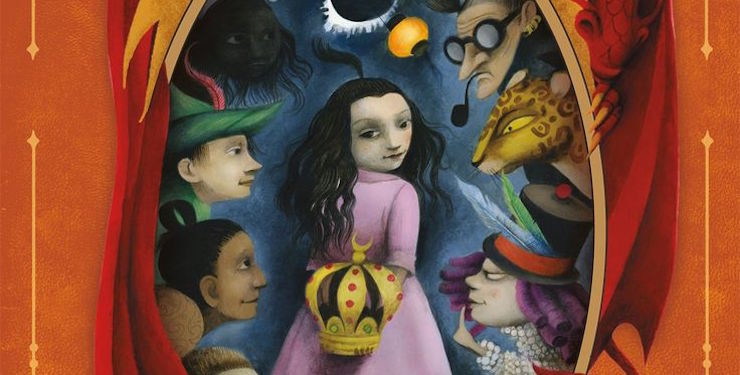 What began in March as a (very detailed!) walkthrough of the appeal of Cat Valente’s “Fairyland” book series became a personal rumination on suddenly finding yourself as the adult in the room, the expert people turn to for guidance. Fairyland as a concept, it seems, has tremendous value beyond being a fanciful escape for a teen reader. It’s a prophecy, a preparation, a comfort to return to when your life tilts increasingly towards responsibility. Most importantly, as Molly discovers, it’s something you shouldn’t ever let yourself leave behind.
What began in March as a (very detailed!) walkthrough of the appeal of Cat Valente’s “Fairyland” book series became a personal rumination on suddenly finding yourself as the adult in the room, the expert people turn to for guidance. Fairyland as a concept, it seems, has tremendous value beyond being a fanciful escape for a teen reader. It’s a prophecy, a preparation, a comfort to return to when your life tilts increasingly towards responsibility. Most importantly, as Molly discovers, it’s something you shouldn’t ever let yourself leave behind.
Preparing Myself for Death with Joe Versus the Volcano by Leah Schnelbach
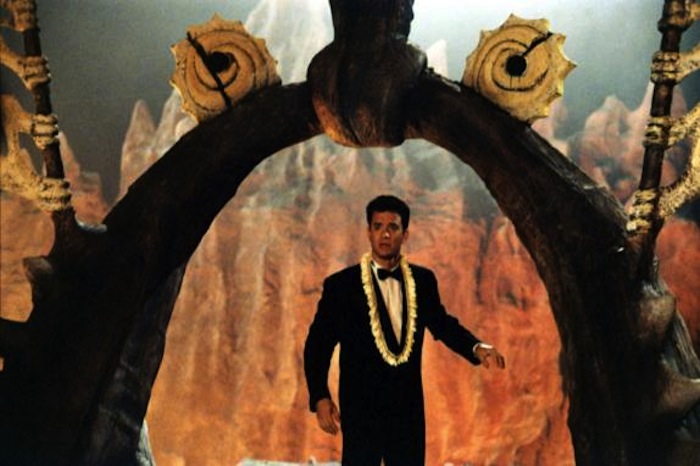 This April 2016 article was supposed to just be a rewatch of a beloved Tom Hanks film. It became Leah Schnelbach’s personal sparring match with death.
This April 2016 article was supposed to just be a rewatch of a beloved Tom Hanks film. It became Leah Schnelbach’s personal sparring match with death.
Death is one of the hardest things to write about on a personal level. And yet, Leah is able to intertwine a crazy cult movie like Joe Vs. The Volcano with her personal life so effectively that combining the two subjects feels inevitable.
Great Writing Advice
Writing Women Characters Into Epic Fantasy Without Quotas by Kate Elliott
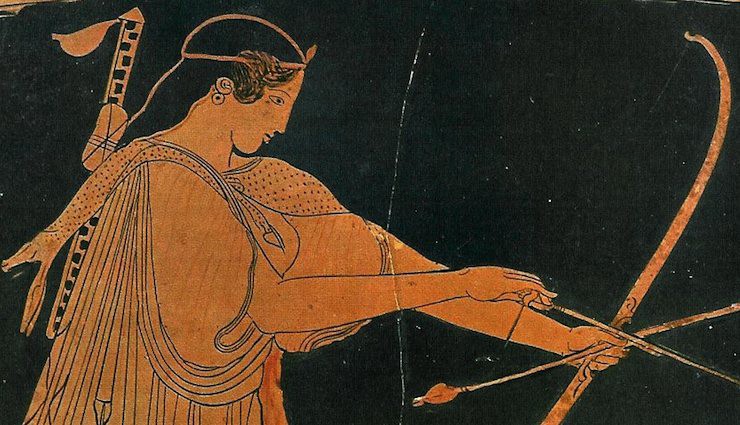
Once you’ve settled the question of representation in your writing, how then do you go about correcting any bias you may unconsciously craft into your characters? In March, Tor.com reproduced Kate Elliott’s essay, which answered this question from the angle of female representation in fantasy and historical fiction. The author provides a wonderfully clear-eyed explanation of how to recognize your assumptions as a writer and how to essentially research your way through them, backed by many, many examples that give writers an idea of where to start their own research. One doesn’t need to create a representative character from nothing, Elliott argues. They’re already present in our histories and myths and stories. Include their details, and your own story becomes richer as a result.
How Your Role-Playing Game Campaign Can Inspire Your Novel by Marie Brennan
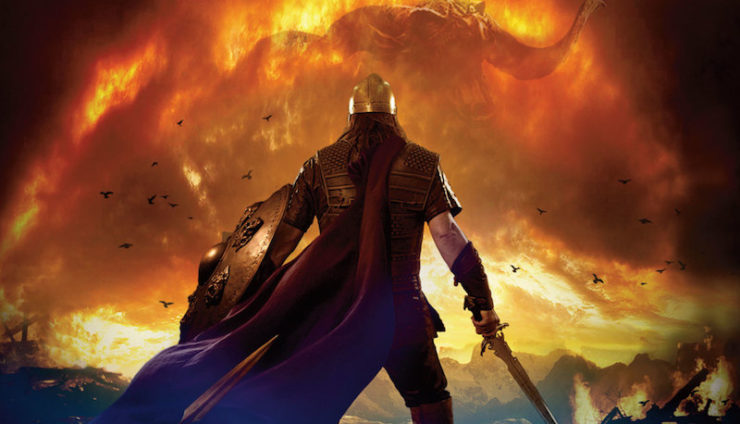 Author Marie Brennan games, researches, writes, then games some more, and in October she detailed some concrete steps that new writers can take when they feel the urge to turn their tabletop gaming campaign into a novel. The article serves as a great introduction to the work that lay ahead. Brennan goes into further detail in the Craft of Writing section on her website: detailing how to write realistic and exciting fight scenes, how to build your world out, and more.
Author Marie Brennan games, researches, writes, then games some more, and in October she detailed some concrete steps that new writers can take when they feel the urge to turn their tabletop gaming campaign into a novel. The article serves as a great introduction to the work that lay ahead. Brennan goes into further detail in the Craft of Writing section on her website: detailing how to write realistic and exciting fight scenes, how to build your world out, and more.
It’s Just Business: Why Rejection of Your Art Feels So Personal by Natalie Zutter
 Writing a novel is a very personal process, and that’s why finishing your novel feels brings such a deep, powerful sense of triumph. In stark contrast, the next step, getting it published, is a very impersonal process and dealing with that swing between the two extremes is difficult for a lot of first time authors. In March, Natalie Zutter offered advice on how to carefully negotiate that emotional rollercoaster, explaining step-by-step what happens when the demand of art meet the demands of a business. Need help working through this sense of rejection? Read this article.
Writing a novel is a very personal process, and that’s why finishing your novel feels brings such a deep, powerful sense of triumph. In stark contrast, the next step, getting it published, is a very impersonal process and dealing with that swing between the two extremes is difficult for a lot of first time authors. In March, Natalie Zutter offered advice on how to carefully negotiate that emotional rollercoaster, explaining step-by-step what happens when the demand of art meet the demands of a business. Need help working through this sense of rejection? Read this article.
The POC Guide to Writing Dialect In Fiction by Kai Ashante Wilson
When using dialect in a story, managing to render it accurately is only the start of your work. Nor is it nearly enough to get every detail right when representing a complex interplay of various dialects, with all their relative power dynamics. What is the crux, then?
The world speaks in a huge variety of different dialects, all of which carry unspoken markers of class, race, and intellect. In his essay in November, Kai Ashante Wilson outlines the severe negotiation that persons of color undergo when writing stories in a dialect that comes naturally to them, but which does not conform to the habits of literary fiction. What stories do we miss by staying within a certain standard? What worlds go unexplored?
How Could The Winds of Winter Be Published In Only Three Months? by Chris Lough
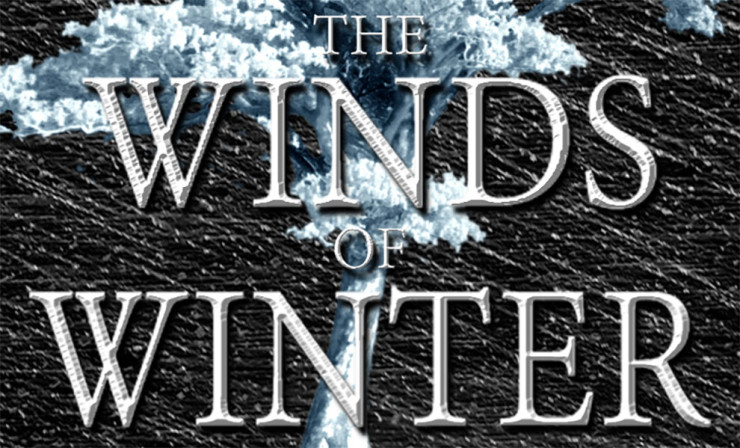 Ever wondered how a book goes from a manuscript to a finished product? In January, Chris Lough walked readers through the various behind-the-scenes work that goes into producing a book (the publisher does a lot more than is apparent), then theorized how a publisher and author could shorten that production process to only three months if they wanted to rush out one of the most anticipated books of the decade: George R. R. Martin’s The Winds of Winter.
Ever wondered how a book goes from a manuscript to a finished product? In January, Chris Lough walked readers through the various behind-the-scenes work that goes into producing a book (the publisher does a lot more than is apparent), then theorized how a publisher and author could shorten that production process to only three months if they wanted to rush out one of the most anticipated books of the decade: George R. R. Martin’s The Winds of Winter.
Cultural Commentary Highlights
Science Fiction Fandom: The Biggest Tent of All by S.B. Divya

Author S.B. Divya’s essay found its way to Tor.com after first appearing on the Kickstarter page for the Lightspeed anthology People of Color Destroy Science Fiction!. Divya points out that one of the most wonderful aspects of sci-fi/fantasy is that it starts as inclusive:
I don’t experience science fiction through a lens colored by my physical appearance. I don’t need characters to resemble me in order to appreciate their struggles.
In Quantum Leap, Dr. Sam Beckett’s True Mission was to Build a Better America by Leah Schnelbach
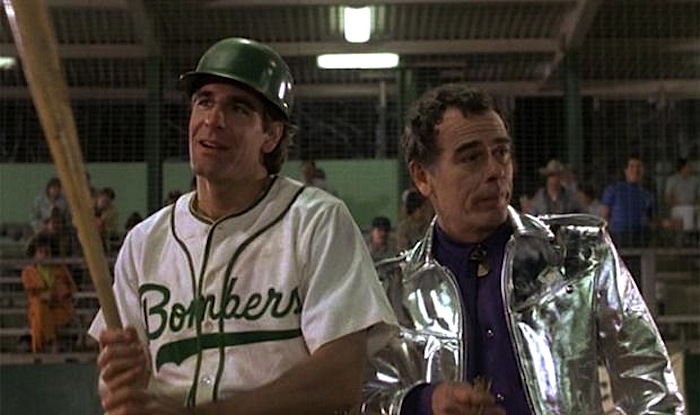 American identity, both as a country and on the individual level, is a pretty fractured topic nowadays, so it came as a pleasant surprise in February when Leah Schnelbach found a unifying light in the now-classic genre television show Quantum Leap. In a “maddening America,” time-leaping Sam Beckett can still lead the way.
American identity, both as a country and on the individual level, is a pretty fractured topic nowadays, so it came as a pleasant surprise in February when Leah Schnelbach found a unifying light in the now-classic genre television show Quantum Leap. In a “maddening America,” time-leaping Sam Beckett can still lead the way.
On Its 50th Anniversary, Star Trek Must Recommit Itself to “Infinite Diversity in Infinite Combinations” by Emmet Asher-Perrin
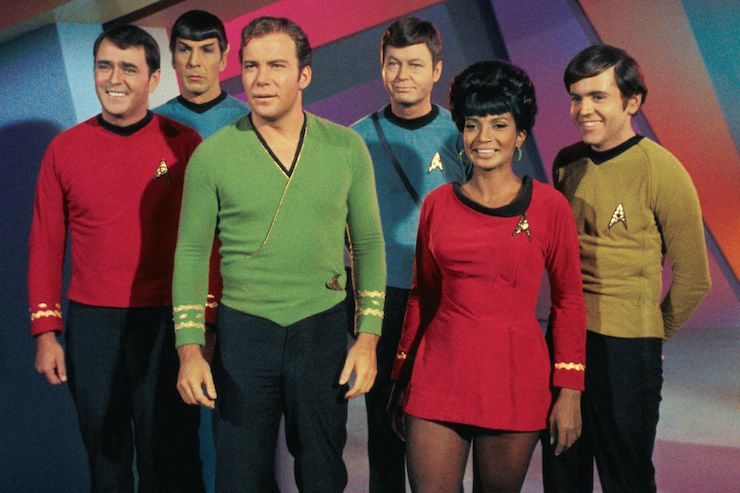 More than ratings or revival, this seems to be the biggest question facing Star Trek: Discovery, as well as further movies with the rebooted “Kelvin Universe” crew: How do you preserve Star Trek as an institution that is socially ahead of its time, as well as technologically? In September Emily asked, and perhaps answered, that key question. Star Trek’s relevancy truly lies in its commitment to IDIC: Infinite Diversity in Infinite Combinations.
More than ratings or revival, this seems to be the biggest question facing Star Trek: Discovery, as well as further movies with the rebooted “Kelvin Universe” crew: How do you preserve Star Trek as an institution that is socially ahead of its time, as well as technologically? In September Emily asked, and perhaps answered, that key question. Star Trek’s relevancy truly lies in its commitment to IDIC: Infinite Diversity in Infinite Combinations.
In History and Fantasy, Diversity is the Tradition by Myke Cole
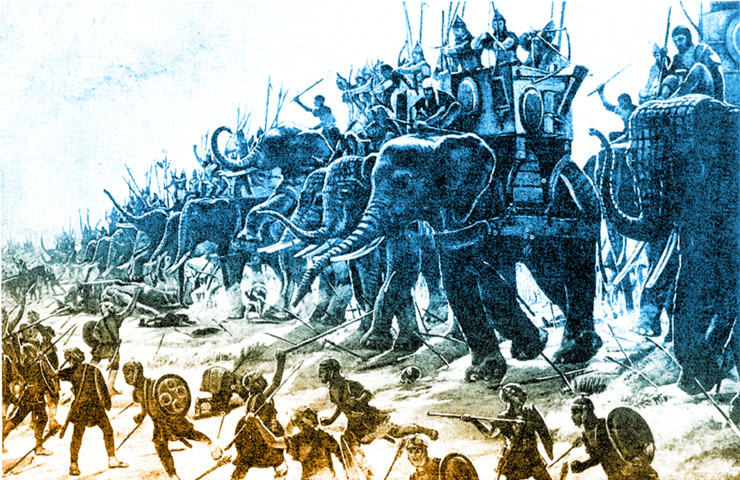 Just as Emily explored diversity in depictions of the future, in March author Myke Cole offered a deep, detailed look at how the mixing of diverse cultures and peoples can be found deeply embedded in Western history. Myke focuses in on how diversity became the foundation of ancient warfare–different culture bring different strategies, and flexibility is key in any engagement–and how we still find echoes of that in modern day games like Warcraft, and more.
Just as Emily explored diversity in depictions of the future, in March author Myke Cole offered a deep, detailed look at how the mixing of diverse cultures and peoples can be found deeply embedded in Western history. Myke focuses in on how diversity became the foundation of ancient warfare–different culture bring different strategies, and flexibility is key in any engagement–and how we still find echoes of that in modern day games like Warcraft, and more.
Apologize to No One — V for Vendetta is More Important Today Than it Ever Was by Emmet Asher-Perrin
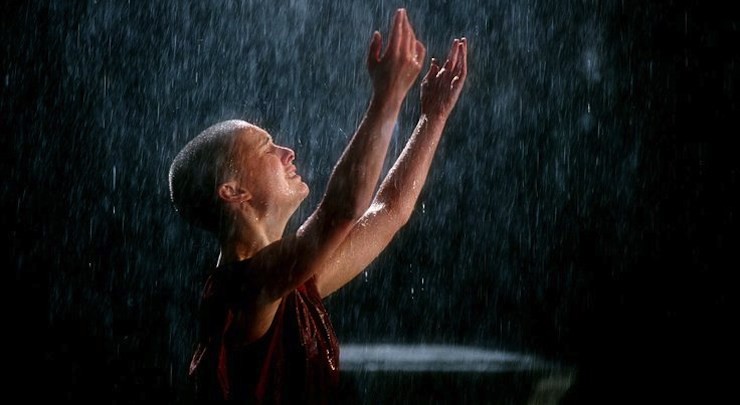 While the relevance of Alan Moore’s story V For Vendetta remains ever-present, this year in particular–and probably for years to come–it sits squarely between the personal and political. Emily’s rewatch of the Wachowski’s movie adaptation in June isn’t just cultural and political commentary. As she devastatingly outlines: now it is life.
While the relevance of Alan Moore’s story V For Vendetta remains ever-present, this year in particular–and probably for years to come–it sits squarely between the personal and political. Emily’s rewatch of the Wachowski’s movie adaptation in June isn’t just cultural and political commentary. As she devastatingly outlines: now it is life.
It seems strange that my life should end in such a terrible place. But for three years I had roses, and apologized to no one.
Fun New Columns & Series You May Have Missed
Medieval Matters by Michael Livingston
 Just what were medieval times REALLY like? Michael Livingston looks at current media, from Game of Thrones to World of Warcraft, and outlines what they get wrong, what they need to get wrong to push the story forward (usually transportation and medical care), and what they get surprisingly correct.
Just what were medieval times REALLY like? Michael Livingston looks at current media, from Game of Thrones to World of Warcraft, and outlines what they get wrong, what they need to get wrong to push the story forward (usually transportation and medical care), and what they get surprisingly correct.
The Disney Read-Watch by Mari Ness
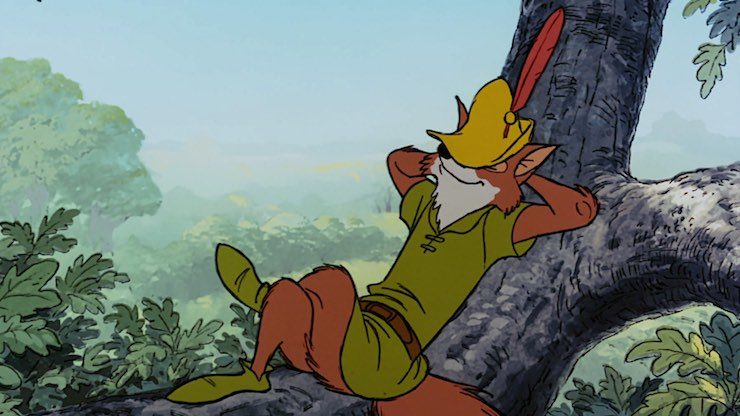 This technically started in 2015 but it’s about to finally catch up to the present day and WOW, what a hilarious ride Mari has taken through Disney’s early adaptations and modern-day puzzlements. Mari’s column is well-researched and loving, while not allowing Disney to wriggle off the hook for their more questionable choices. The result is a consistently funny column; one that appears every Thursday afternoon on the site.
This technically started in 2015 but it’s about to finally catch up to the present day and WOW, what a hilarious ride Mari has taken through Disney’s early adaptations and modern-day puzzlements. Mari’s column is well-researched and loving, while not allowing Disney to wriggle off the hook for their more questionable choices. The result is a consistently funny column; one that appears every Thursday afternoon on the site.
The Wachowski Rewatch by Emmet Asher-Perrin
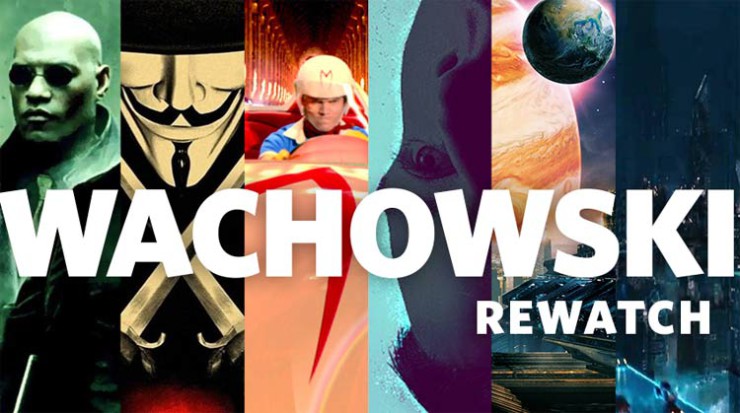 For many people, the Wachowskis are the creators of those Matrix sequels that we all kind of tuned out of. Spurred on this past summer by their new groundbreaking Netflix series Sense8, Emmet Asher-Perrin took a new look through their output from The Matrix onwards and found…a LOT more than we originally thought was there! Slowly, surely, the sister-sister filmmakers have been creating a definitive cinematic line-up for the 21st century. We’ll never underestimate the Wachowskis ever again.
For many people, the Wachowskis are the creators of those Matrix sequels that we all kind of tuned out of. Spurred on this past summer by their new groundbreaking Netflix series Sense8, Emmet Asher-Perrin took a new look through their output from The Matrix onwards and found…a LOT more than we originally thought was there! Slowly, surely, the sister-sister filmmakers have been creating a definitive cinematic line-up for the 21st century. We’ll never underestimate the Wachowskis ever again.
The Women of Harry Potter by Sarah Gailey
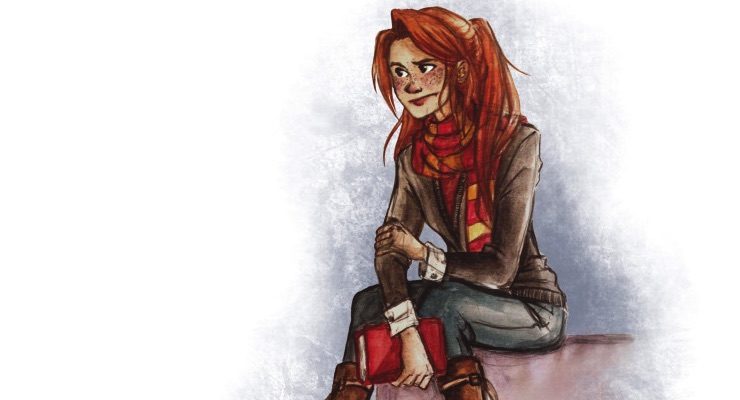
Sarah Gailey burst onto the scene in August with “In Defense of Villainesses” (“She’s fabulous. Her hair is done. Her makeup is flawless… And she is in charge now.”) and expanded outwards like a supernova into her current series: The Women of Harry Potter. Ginny Weasley, Hermione Granger, Dolores Umbridge, Luna Lovegood, Molly Weasley…Sarah has examined these characters with deftness, humor, and a dogged insight that places them squarely in the middle of current events. In many ways, Sarah’s interpretation of these characters makes them feel more real than the books and movies ever did.
Every Crazy Idea You’ve Never Dared Voice by Alasdair Stuart
 Writer Alasdair Stuart doesn’t have a specific column on Tor.com but over the course of 2016 he’s mastered a thrilling style of conceptual commentary. His articles dig fearlessly for meaning in even the most seemingly mundane movies and books…and more often than not, he finds something new and surprising and wonderful. (Who knew the next Transformers movie had such…mythological implications?!?) You may not care about what he’s discussing, but you’re guaranteed a fun read anyhow. (He’s even kind of fun to disagree with. That’s one hell of a trick!)
Writer Alasdair Stuart doesn’t have a specific column on Tor.com but over the course of 2016 he’s mastered a thrilling style of conceptual commentary. His articles dig fearlessly for meaning in even the most seemingly mundane movies and books…and more often than not, he finds something new and surprising and wonderful. (Who knew the next Transformers movie had such…mythological implications?!?) You may not care about what he’s discussing, but you’re guaranteed a fun read anyhow. (He’s even kind of fun to disagree with. That’s one hell of a trick!)
The Movie Rewatch of Great Nostalgia by Leigh Butler
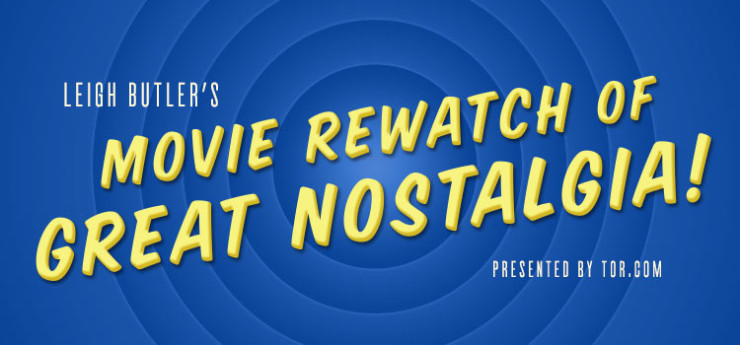 In 2016 the unique and hilarious voice of Wheel of Time expert Leigh Butler began to tackle all those movies you grew up watching. Return to Oz…Red Sonja…Ghostbusters 1 and 2…Golden Child… odds are that if you had a VHS of it taped off of the TV then Leigh’s covered it (or is about to). The bi-weekly column has proved a wonderful oasis of hilarity.
In 2016 the unique and hilarious voice of Wheel of Time expert Leigh Butler began to tackle all those movies you grew up watching. Return to Oz…Red Sonja…Ghostbusters 1 and 2…Golden Child… odds are that if you had a VHS of it taped off of the TV then Leigh’s covered it (or is about to). The bi-weekly column has proved a wonderful oasis of hilarity.
Great Deep Dives Into Nerd-dom
Luthien: Tolkien’s Badass Elf Princess by Jeff LaSala

For the most part, modern fantasy has abandoned the old trope of the damsel in distress. When you read fantasy today you’re more likely than ever to come across take-charge warrior princesses, assertive elf maidens, and snarky mercenaries who just happen to be female. But Jeff LaSala would like us all to take a moment and remember someone who broke that mold decades ago: Lúthien Tinúviel. Rather than pining away in a prison, Lúthien not only escaped under her own power, but rescued her love, Beren, and continued to quest right alongside him. Drawing on The Lord of the Rings and The Silmarillion, LaSala sings a song of Tolkien’s original badass.
Safe as Life: A Four-Part Essay on Maggie Stiefvater’s Raven Cycle by Lee Mandelo

Across April, May, and June this year writer Lee Mandelo wowed us with their detailed and heartfelt devotional examination of Maggie Stiefvater’s The Raven Cycle. The devotion in Brit’s feature article is so overwhelming and pure that it’s difficult, if not impossible, not to find yourself young again, the feel of love and death pressed against your skin, the magic bursting from your eyes.
100 African Writers of SFF — Part One: Nairobi by Geoff Ryman
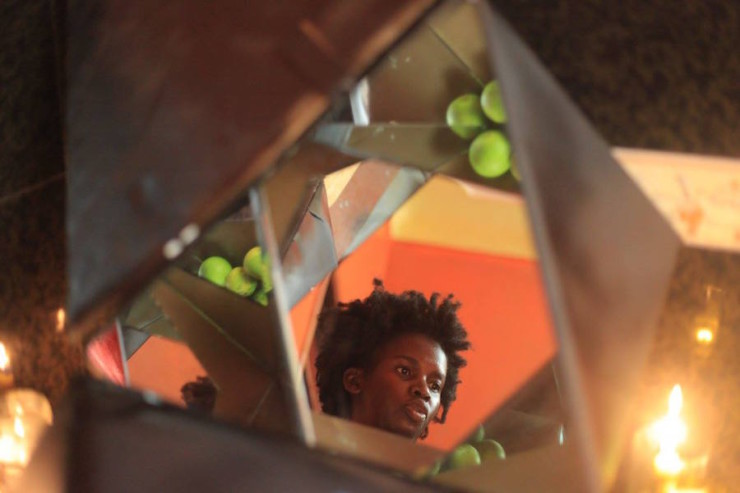
Over the course of 2016 author Geoff Ryman has been exhaustively revealing 100 BRAND NEW science fiction and fantasy writers. Part One and Two of Ryman’s on-the-ground collection of interviews and stories is nearly the length of a novel. Appropriate, considering that Geoff is chronicling a genre fiction scene as large as an entire country (Nairobi), floating out beyond the horizon. Reading through Geoff’s journey reveals a fascinating glimpse at the past of science fiction come again, along with a very real view of its future.
Are We Heading Towards an Infomocracy? by Malka Older
 Author and international humanitarian worker Malka Older has a unique worldview on not just the U.S. election, but elections in developing countries around the world. From those experiences has emerged a concept she has dubbed “infomocracy”. This past November, Malka dug into more detail as to how infomocracy could be the future of democratic elections and the roadblocks that would need to be overcome in order to achieve such an egalitarian future. The result is a fascinating what-if.
Author and international humanitarian worker Malka Older has a unique worldview on not just the U.S. election, but elections in developing countries around the world. From those experiences has emerged a concept she has dubbed “infomocracy”. This past November, Malka dug into more detail as to how infomocracy could be the future of democratic elections and the roadblocks that would need to be overcome in order to achieve such an egalitarian future. The result is a fascinating what-if.
Did We Come Across Town For This? Revisiting A Charlie Brown Thanksgiving by Leah Schnelbach
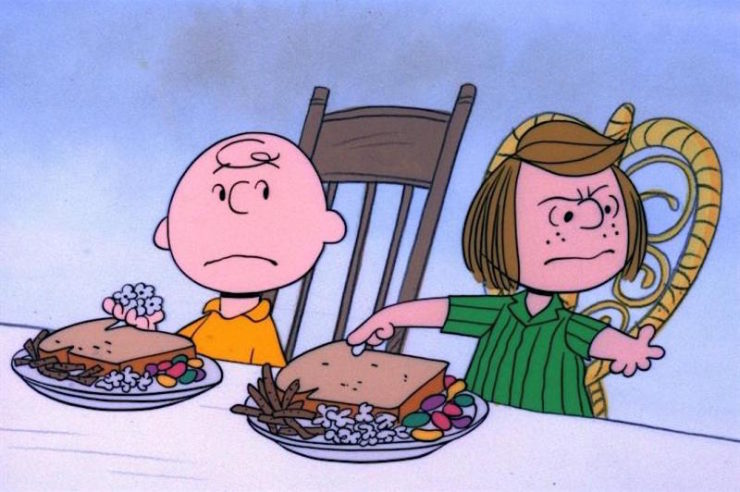 Sometimes inspiration comes from the oddest places.
Sometimes inspiration comes from the oddest places.
From Leah: “When I rewatched this Peanuts special I found that the show packed a surprising amount of depth in between all the Snoopy shenanigans and toast-buttering montages.
“In fact if you look closely enough, I think you might find a statement about what it means to be an American.”
Thank you for reading and commenting on Tor.com in 2016! We’re extremely proud of our authors, our staff writers, and our contributors, and we hope to keep you entertained and explorative into 2017 and beyond.










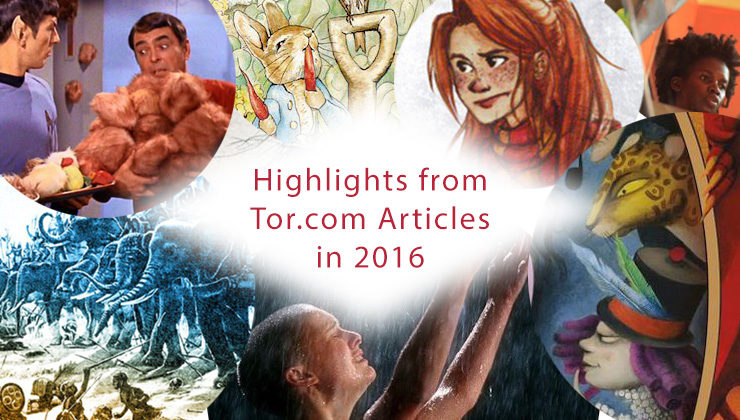
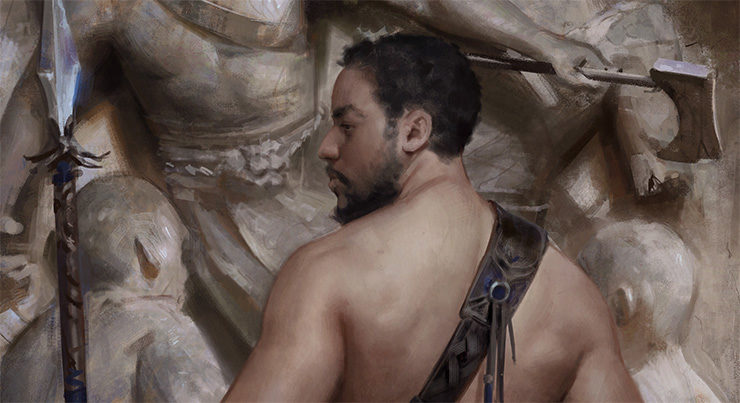
Africa is a continent, not a country.
The Disney read-watch has been a great source of enjoyment for me over the past year or so! And I always love LaSala’s Tolkien articles and the discussion they generate. The Women of Harry Potter series has been an interesting perspective too, even if I dont agree with every interpretation.
I would include the The Beginner’s Guide to Malazan Characters: Garden of the Moon by Laura M. Hughes for purely selfish reasons. Based on her article, I returned to this series after having given up years earlier. I am now on Book 8 and have loved them. She was so enthusiastic about the series that I knew I had to give it another try, and I am so thankful I did.